You know that little inner voice whispering in your ear to be cautious about this, or to give more weight to that? Dominique Fils-Aimé always listens to it — especially when people push her to go against her gut instinct. The jazz artist doesn’t care for conventions or received wisdom. She treats every seed life drops along her path as an opportunity to follow her instincts. To go her own way. To listen to her heart. And it pays off.
The Montreal singer-songwriter tends to question everything we take for granted. Case in point: applause between songs at her shows. Anyone who’s seen her live knows she asks audiences to wait until the end of the performance to clap, so as not to break the spell she creates each time.
“I wanted to stop the usual format of ‘talk, sing, applause, talk, sing, applause.’ At first, people found it confronting. A lot of them said: ‘It makes me feel weird,’” she recalls. “But can’t we ask ourselves these kinds of questions more broadly in life? What are the little habits we’re so used to that not doing them makes us uncomfortable? Do they belong? What do they mean? We tell ourselves: ‘That’s the way it’s done, so let’s do it.’ Let’s question everything. Absolutely everything.”
Dominique Fils-Aimé questions absolutely everything, including the conventional music industry cycle — singles, then an album, then a tour. Even before releasing her debut album Nameless, she knew she wanted to make a trilogy. “I was often told people don’t have time for trilogies,” she says. “But I want to take my time. I want to invite people into a long-term process. I want to offer someone who’s curious the chance to go deeper into an artistic journey. Sure, it’s not for everyone, and that’s fine.”
I don’t want to be for everyone. I want to be myself.
This determination to follow her heart is the very essence of jazz — the genre she’s become a flagbearer for in Quebec. “Jazz is anti-academic. It’s about breaking down established rules. It’s the freedom to do what others say you can’t do. It’s a mindset. It's my mindset: creative freedom.”
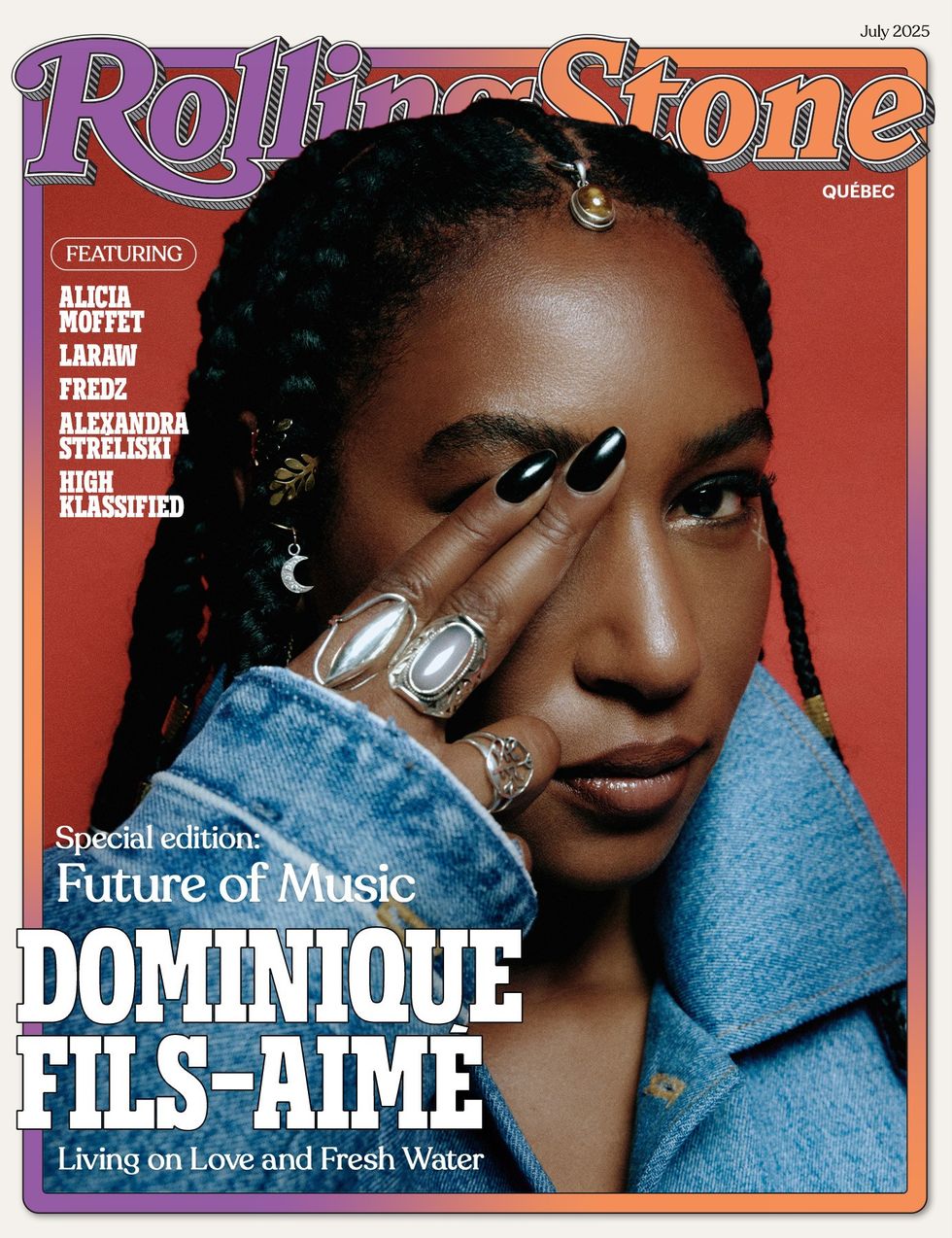
In pure jazz tradition, Dominique Fils-Aimé recently released a live album documenting the major outdoor concert she gave last summer at the Montreal International Jazz Festival. A milestone in a remarkable career — recorded exactly ten years after the public first discovered her immense talent.
Asked what she remembers from that landmark show, she exhales with joy. “So many beautiful memories. Love, always. Waves of love. And deep gratitude to be on that stage.” Gratitude, especially, for the festival team — who, she recently learned, had been paving the way for this moment from the very beginning of her career.
“I was really lucky: the festival supported me from the start. At the beginning of my trilogy, my manager Kevin Annocque and I — who co-founded Ensoul Records — barely knew what we were doing. But I found out after last summer’s show that the festival team had everything mapped out from the first album, when I played the little room upstairs at MTELUS [the M2]. They had a whole long-term path planned to get me to the main stage!” she says, still in awe. “The lesson I took from that is: we worry too much about people talking behind our backs or sabotaging us, but we should really focus on the little angels along the way quietly conspiring for our success.”
One such angel is her sound engineer Simon Lévesque, whom she “loves dearly” and sees as a full-fledged member of her musical team. On his own initiative, he records every show in multitrack. “He sends us all the files. I don’t listen to any of them, but they’re there!” she laughs.
Of course, he recorded the Jazz Fest show — even though no one had planned to turn it into an album. Only afterward did Kevin Annocque convince her it was worth releasing. “He told me: ‘Hey, that was an amazing show! We should make it an album.’” At first, she wasn’t thrilled with the idea, thinking her vocals hadn’t been at their best. But she eventually changed her mind. “I realized that whatever the performance lacked in perfection, you can hear it in the emotion. And that’s worth keeping.” I tell her it was a great decision. “Yes, Kevin makes good calls!”
Indeed, he has good instincts. The singer’s warm, enveloping voice shines throughout the recording, from soaring peaks to hushed restraint. The energy of the show is palpable, magnified by 16 musicians and choristers on stage. From the a cappella opener—sung in monastic silence, a feat for Place des Festivals! — to the euphoric grooves of Grow Mama Grow, it’s a vibrant, joyful ride.
The set overflows with inspired improvisation, bold tonal shifts, and stunning vocal harmonies. It’s a perfect showcase of her musical journey so far, touching on jazz, soul, R&B, blues, gospel — even rock and hip-hop. For those who missed this ambitious concert, the album is pure joy.
The release comes amid a flurry of projects. Since January, barely a week goes by without a press release announcing a new venture — from performing at Expo 2025 in Osaka to Nikamotan MTL, a project bridging Indigenous and non-Indigenous artists — or news of an award, like those from the Dynastie Gala and SOCAN.
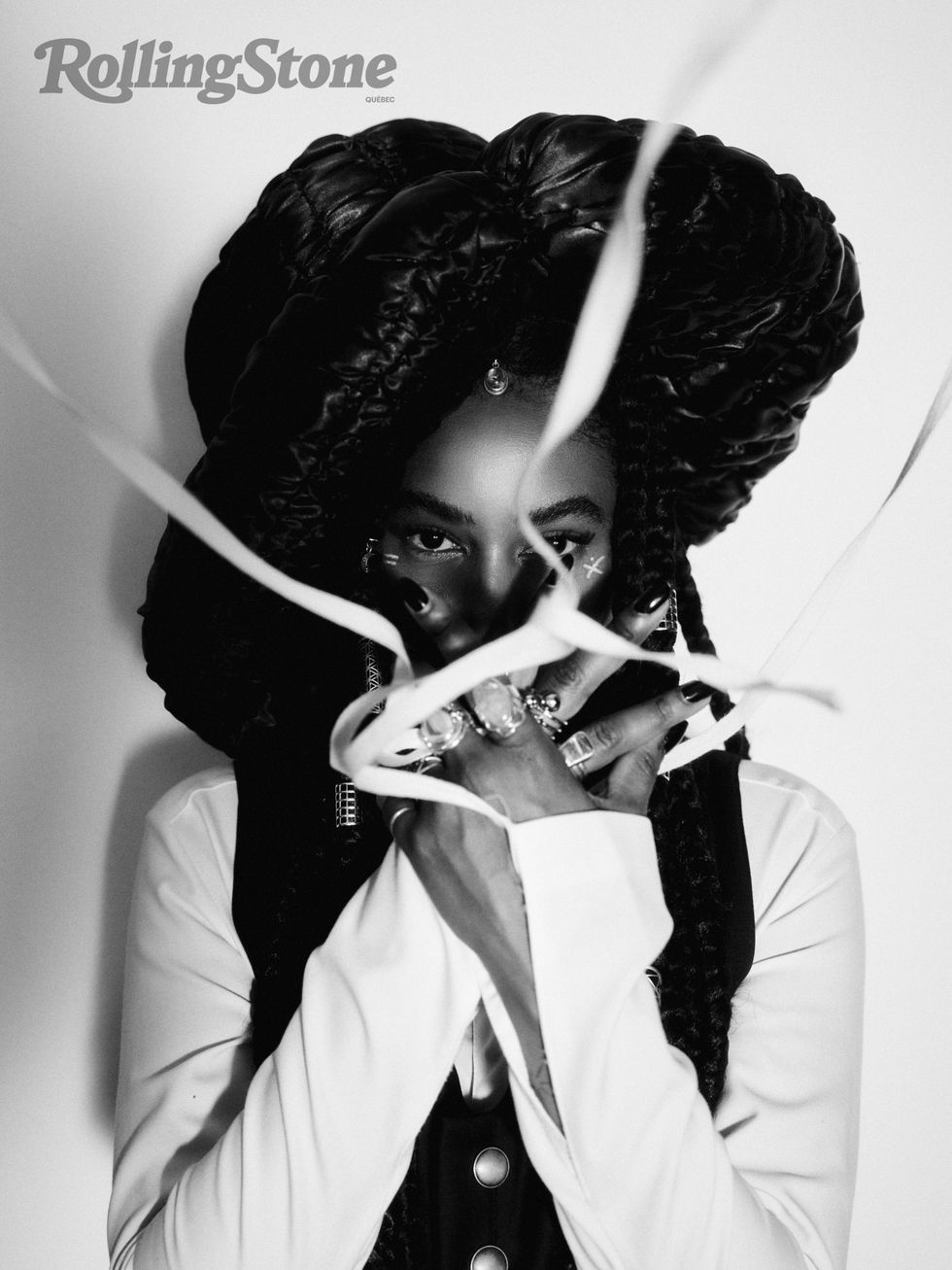
Last spring, she performed in Sweden, Germany, Spain, France, and England. In September, she’ll tour the U.S. for the first time. Meanwhile, between Quebec gigs — including Festif! in Baie-Saint-Paul and Théâtre de Verdure in Montreal — she’s recording her fifth album of original material in eight years.
Just summarizing her schedule is dizzying. For someone who claims to champion slowness, she’s impressively productive. She bursts out laughing when I point out the paradox. “Yes! Wow... One point for you, no one’s ever called that out before,” she says, genuinely surprised. “You’re 100% right. I’m passionate, maybe a bit extreme when I love something. I think I have an addictive personality. I got lucky it was music and not crack,” she jokes.
Even her production company, La Maison Fauve, noted that no other artist on their roster has released as many albums and tours without a break.
Ironically, it’s her commitment to the principles of slow living that makes her so productive, she argues. “Because I feel good. I could make music all day and not feel like I’m working. But I’m starting to realize — it is work. And I want to learn to slow down.” She’s thinking of taking a vacation in 2027 or 2028. “Might not be a bad idea, but...”
- Why stop when you’re inspired?
- Exactly. I’m having fun. I love what I do.”
Despite her packed agenda, she looks particularly serene and well-rested when we meet on a dreary May day at a Mile End café she frequents. In another life, she worked in corporate mental health and burned out. “I used to define myself through work. My job was my identity. That burnout made me let go and just follow where life was leading me.” Music became her lifeline.
To devote more time to it, she took a job at a café. That lifestyle fulfilled her completely, she says. Soon after, she met Kevin Annocque, who shared her vision of success. Together, they made a pact to create without compromise. “We decided not to make music just to sell. He told me: ‘We probably won’t be on the radio, we probably won’t make a lot of money, but if you’re okay with keeping a side job, I promise you’ll be free.’ That fit perfectly with my values. Others had tried to mold me, offering videos with backup dancers and saying I wouldn’t need to write — ‘we’ll give you covers.’ But I want to write! I want to create!” That’s why Dominique Fils-Aimé is so deeply grateful to now live off her art.
Dress: Helmer/Jewelry: Personal Collection 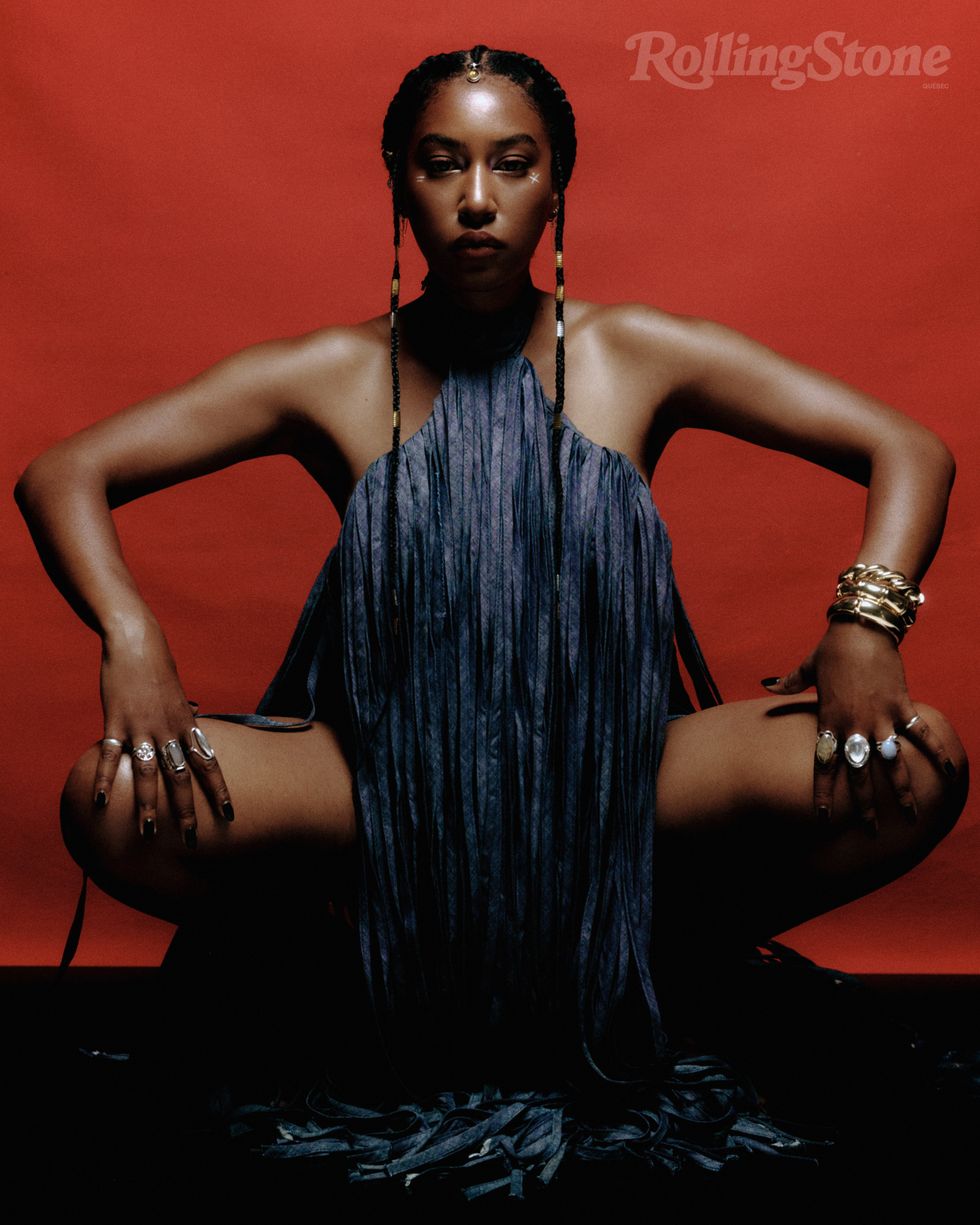
Though technically a solo act, she often speaks in terms of “we.” “I have the best team,” she says repeatedly during our conversation. “Honestly, there’s so much good music out there. The difference is the team,” she insists. She jokes that 90% of her success comes from her team, and only 10% from her talent. That seems modest. Too modest? “I’m just being realistic,” she says. “They deserve all the flowers.”
She repeats it after our photo shoot — four joyful hours with Sacha Cohen capturing her radiant presence. “It’s 90% the team, 10% talent!” she beams.
In her life and in her art, Dominique Fils-Aimé lives by three guiding principles: love, peace, and gratitude. She returns to these words again and again in our exchange — even though she says people have mocked those values as naïve. “In this world, I’ve been ridiculed,” she says. “You see it in people’s eyes — ‘you’re cute.’ Talking about love as a healing force or the power of universal love... people lump that in with hippie stuff.”
Her response? Follow her heart, always. “It’s not naïve. It’s not cheesy. It’s what we all want — peace and love. Why do they have such a bad reputation?”
When I suggest it might stem from cynicism, she lights up. “Yes! Exactly. There’s this idea of: ‘That’s all well and good, but it’s not the real world.’ But it is. It’s part of this world,” she says. “I can’t blame anyone for their views. I can only choose not to care — and hold to mine anyway.”
My deepest intention is to share love and good energy.
That’s the gentle resistance Dominique Fils-Aimé has been practicing from day one. Far from the superficial hashtagged “#gratitude” trend, hers is a deeper conviction — a form of soft power activism.
“I think revolution can take many forms,” says the 2022 Artist for Peace award winner, one of many accolades she treasures. “Some people are meant to speak out loudly, and I 100% support that. But there’s also backlash. I want to hold space where I can support those people — where I can promote the world I want to live in.”
That doesn’t mean she shies away from taking a stand. On April 5, in an Instagram post responding to global injustice, she wrote: “It's a strange place to be. Profoundly grateful for my life while deeply saddened by the state of the world… Fighting the useless guilt and despair with the hope my music brings love and light. It’s like trying to cultivate joy while mourning. Life is plural. Also, ‘defund the police’ means reinvesting in more adequate services. I'll just leave this here with a sigh.”
Her upcoming U.S. tour prompted deep reflection, especially considering Trump-era policies. But she reached a place of peace. “It’s possible to truly love everyone — even if I disagree with what they do,” she says. “If we shut out people who think differently, we deepen the divides. And that scares me. It’s made worse by online echo chambers — everyone’s in their own little bubble, and the other side seems far away and weird. I don’t want to fall into that trap. I don’t want to contribute to that divide. In the end, every person deserves love.”
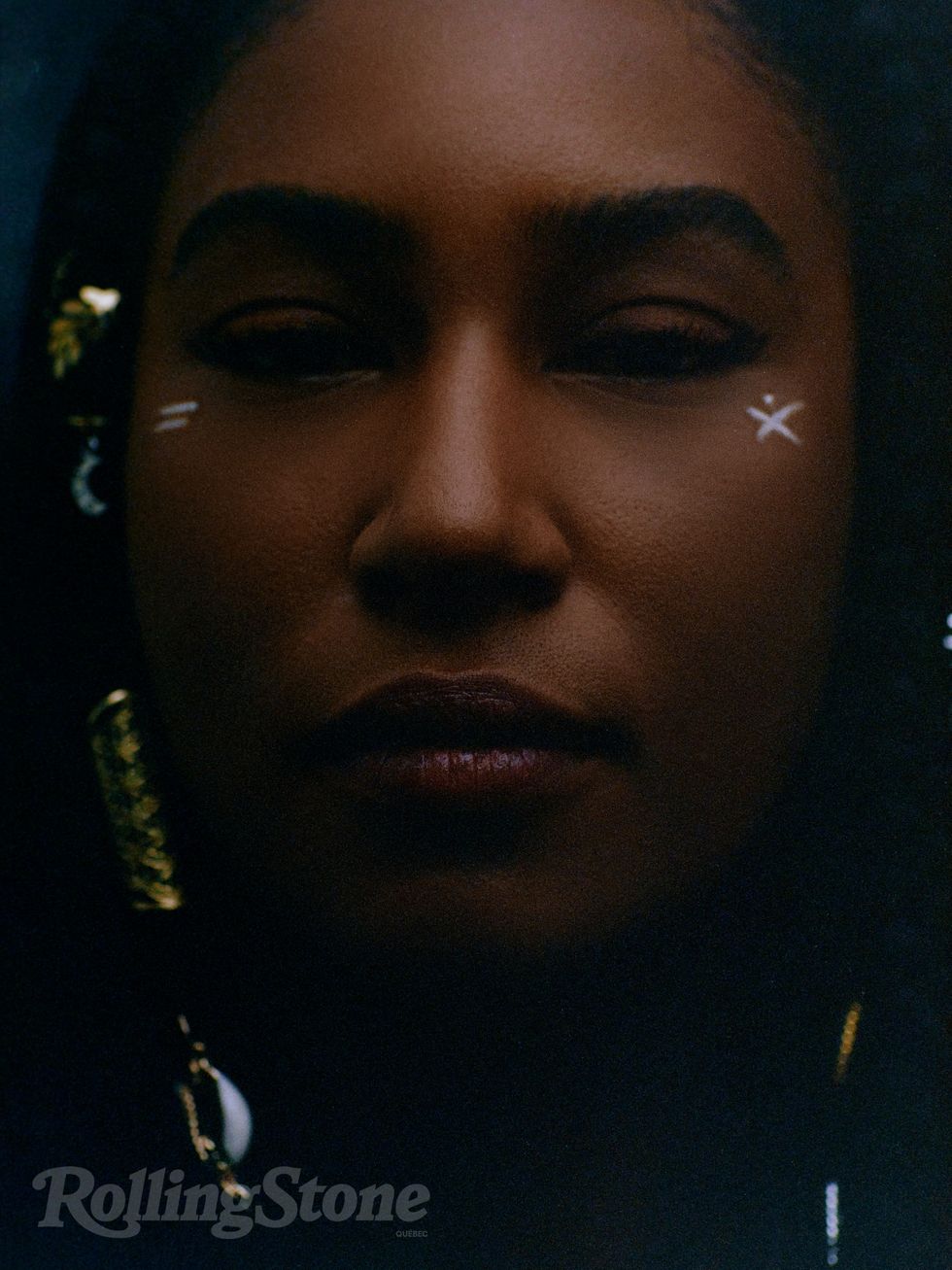
It’s easy to forget now, but Dominique Fils-Aimé first appeared on the public radar through Quebec's adaptation of the The Voice —La Voix — in 2015. She joined simply to familiarize herself with the audition process and ended up a semifinalist. “I saw it as an experience. I love challenges. If something scares me, I have to do it. Because once it’s done, it feels so small. That’s always the case — our fears are bigger than reality,” she says with characteristic wisdom.
Three years later, she released Nameless, the first in her trilogy honoring the musical heritage of the African diaspora. A year later, Stay Tuned! brought her success and acclaim: a Juno for Best Vocal Jazz Album, a Félix for Jazz Album of the Year, a Polaris shortlist nod, and a spot as Radio-Canada’s Jazz Revelation.
She’s since released two more albums: Three Little Words, completing the trilogy, and Our Roots Run Deep, the start of a new creative cycle. Both earned Polaris nominations, and the latest also added more Junos and Félix trophies to her shelf. In recent months, she received SOCAN’s Hagood Hardy Award and the Dynastie Gala prize for International Artist of the Year.
How does she process all these accolades? They validate her place in music, she admits, but she tries not to focus on them too much. “It’s something I had to reflect on, because I don’t feel any competition with others. That goes against my values as an artist. I see everyone as my teammate. My well-being depends on my neighbor’s, and vice versa.”
That’s why she doesn’t keep her trophies at home. “My sweet mom has them all,” she says with a huge smile. “They’re on her mantel. She’s really proud. It warms my heart to give her that.” Like many immigrant families, hers — of Haitian origin — made sacrifices so their children could have better opportunities. “And I come from a family of scientists. My mom’s a doctor. I’ve always been surrounded by people with ‘serious careers’… These awards helped ease her worries when I chose music.”
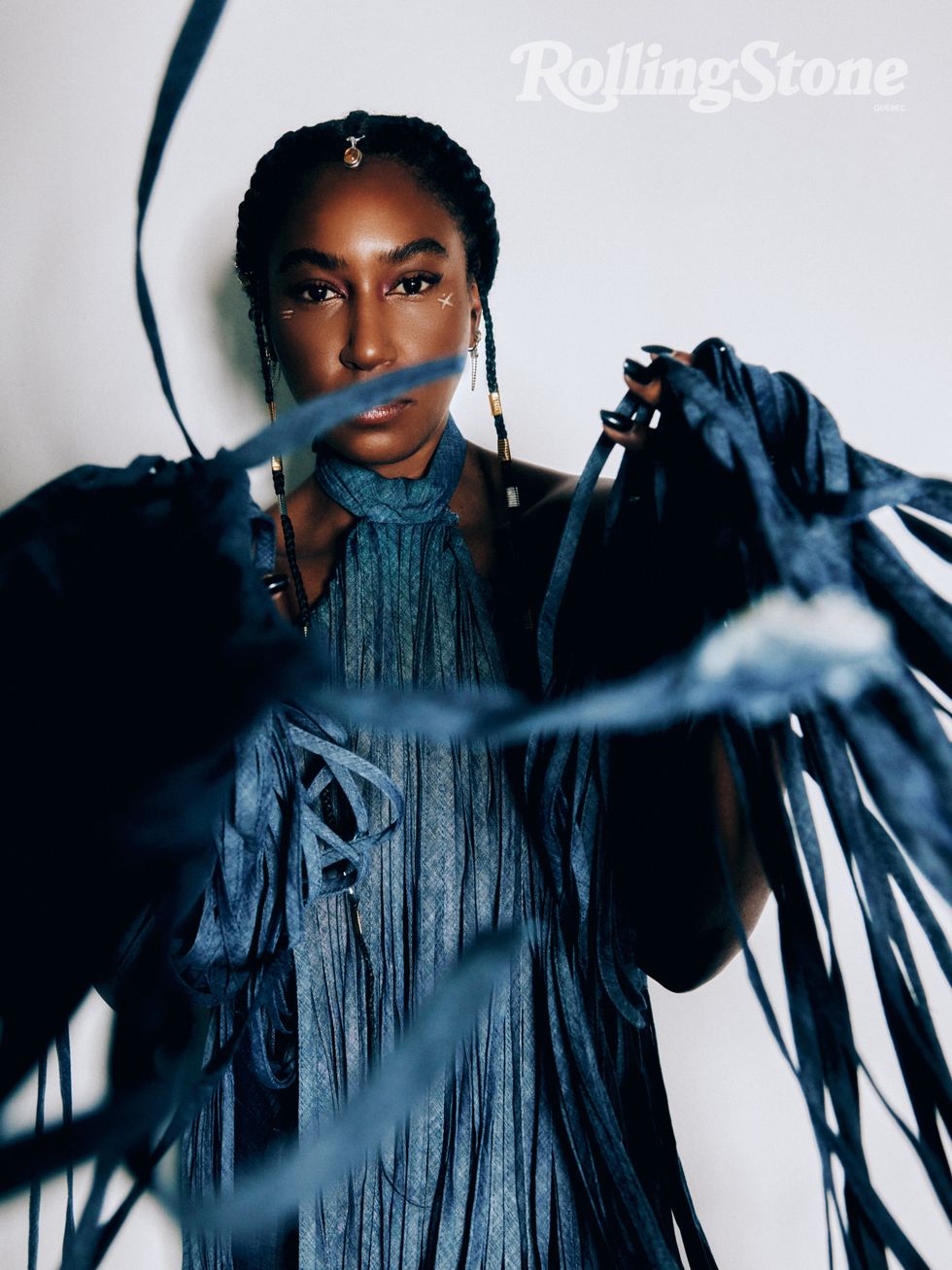
People often say Dominique Fils-Aimé’s voice and music soothe the soul. But even in silence, she radiates kindness and warmth. Enough that I dare to briefly set aside my journalistic reserve and make a personal confession. I tell her how much her song Quiet Down the Voices, from Our Roots Run Deep, has helped me. Her eyes light up as she places her hands over her heart.
“Deep joy. Truly. Thank you for saying that. I created Quiet Down specifically to offer a space of calm for anyone who might need to recenter. If I need it, someone else surely does too!”
She hears stories like that all the time. “It fills me with gratitude when people take the time to share their experience. That’s worth 10,000 awards. I’ve always felt a mission to contribute to others’ well-being — but now I’ve found a way that nourishes me too. That’s heaven.”
Then she eagerly shares a song that gives her that same feeling: Sit Around the Fire by Jon Hopkins. “This song changed my life. It feels like a gift I was given, and now I want to share it with as many people as possible. I can’t wait for you to hear it!” she says, adding it to my phone.
Well-being, connection, the power of the present moment — that’s what Dominique Fils-Aimé explores in her second trilogy. Our Roots Run Deep is already about growth, our link to nature, and the interconnectedness of all living beings. She can’t reveal much about the next chapter, due in 2026, but she shares the mindset guiding her.
“I’m trying to embody this idea I often talk about: intentionality in music. Returning to childhood — creating for the joy of it, letting go of the thinking brain. I’m trying to stay as close as possible to raw emotion, to spontaneous truth. That’s pure jazz to me.”
Jazz says: it all sounds good. You are free.
She admits her pursuit of authenticity was once held back by modesty. “It took me three albums to say the word ‘love,’ even though it’s what I live and breathe all day long. It’s my favorite subject. That, and drinking water!”
After a long, timeless-feeling conversation in a noisy café, I turn off my recorder. Coat buttoned, umbrella in hand, Dominique Fils-Aimé hugs me and asks, with a smile, about my water intake. Clearly, she really does live on love and fresh water.
“Exactly! We’re like plants. That’s all we really need.”
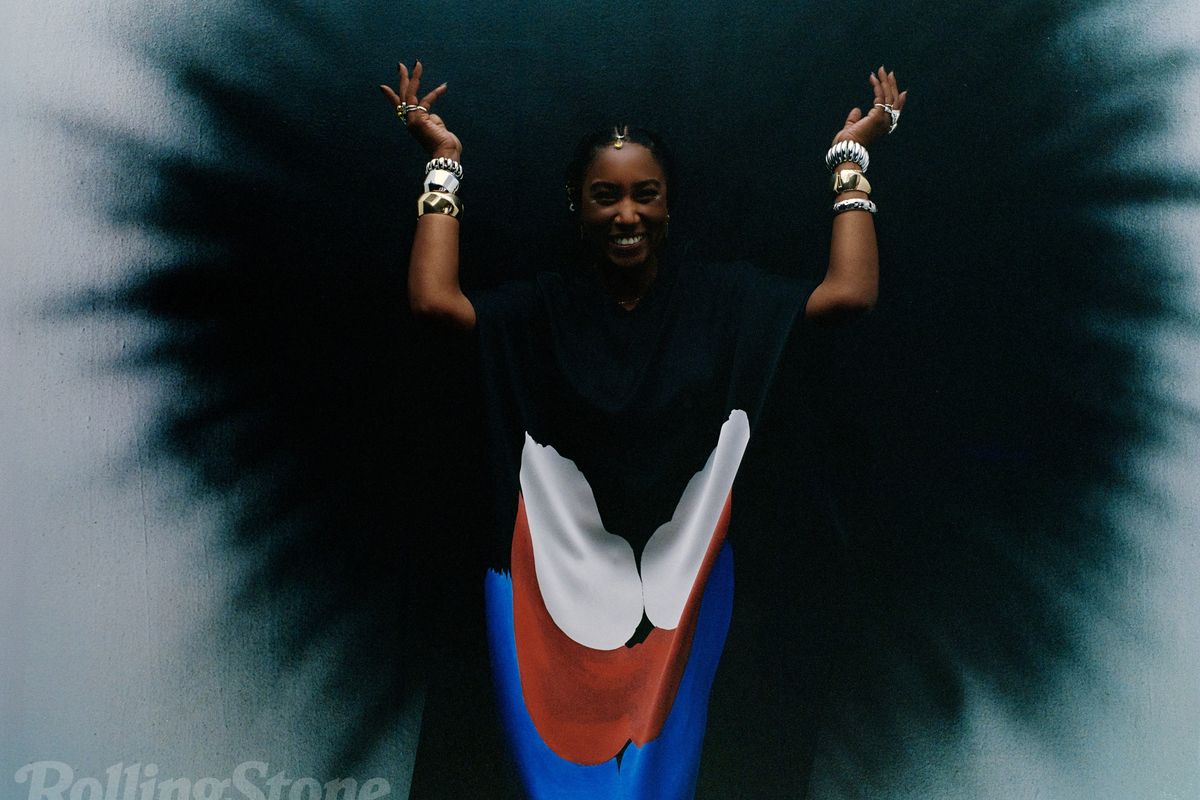





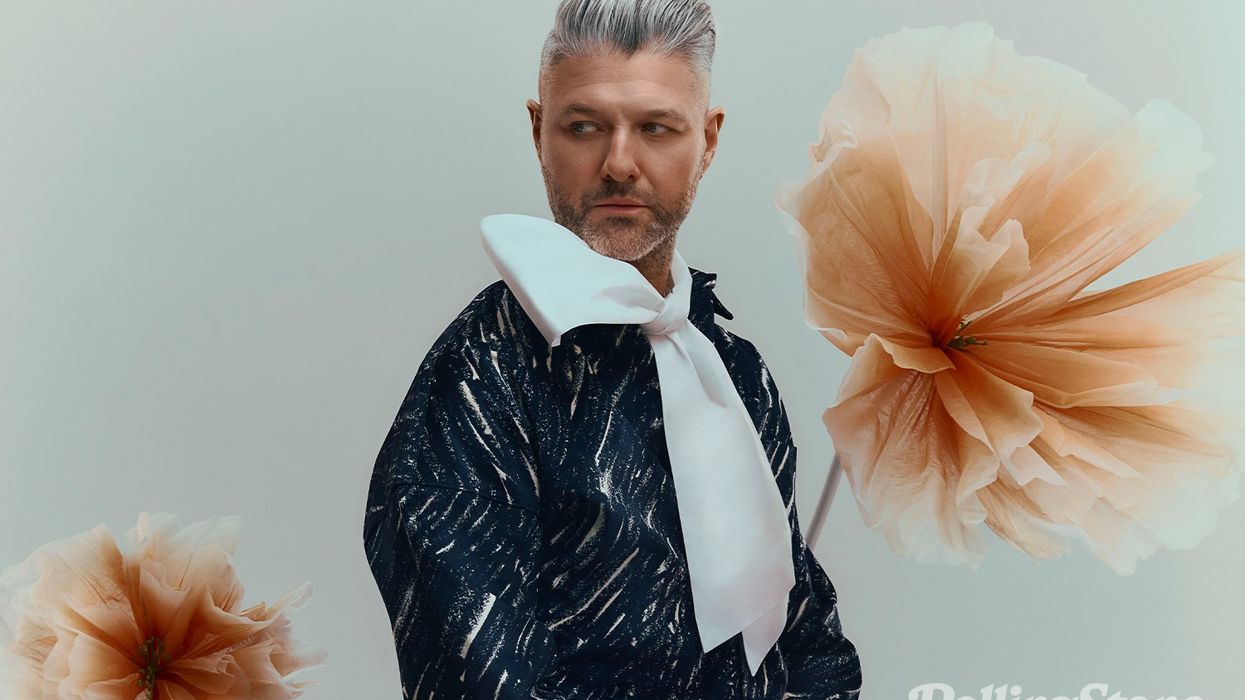
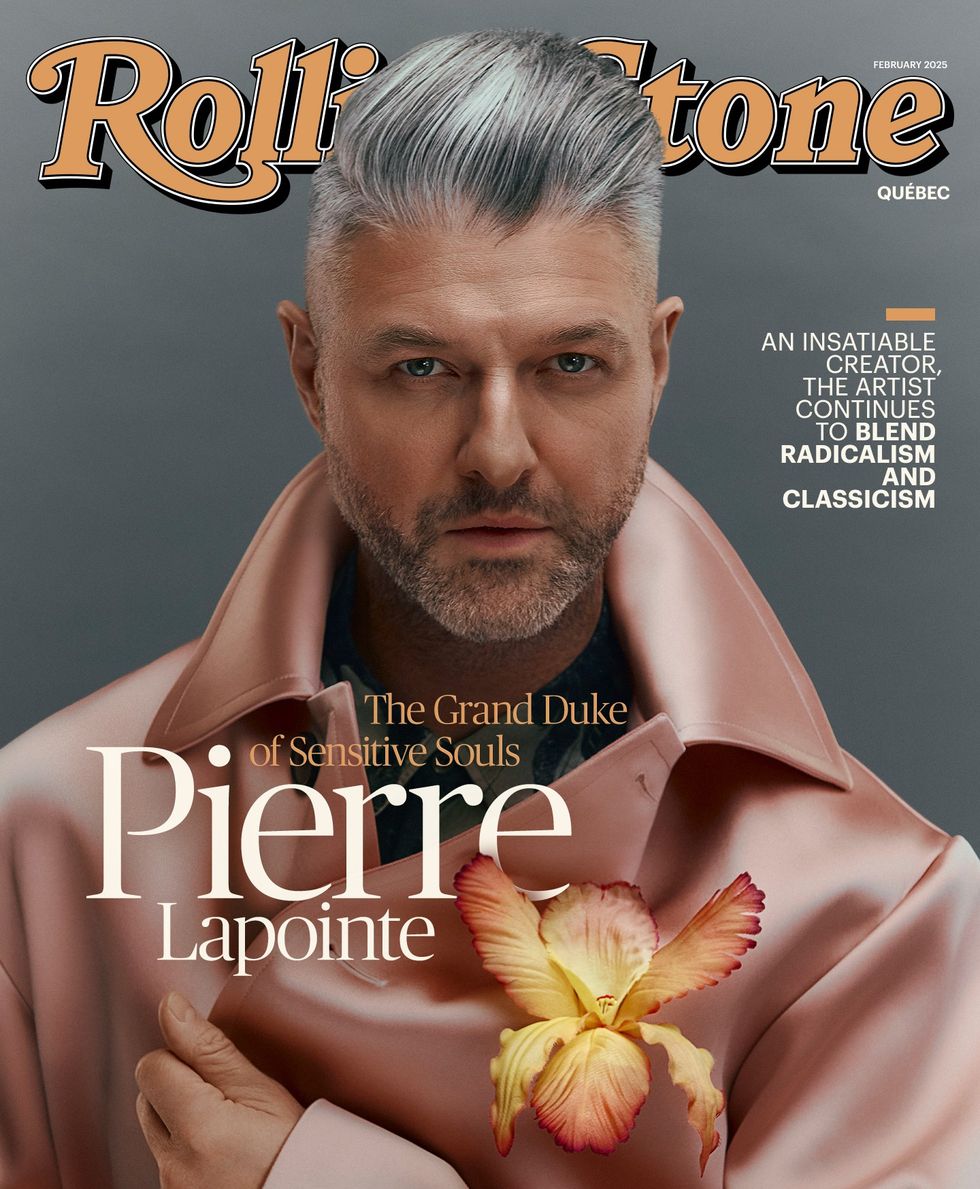 Coat (polyester and wool), shirt (silk), Dries Van Noten, SSENSE.com / Flower (silk), M&S Schmalberg
Coat (polyester and wool), shirt (silk), Dries Van Noten, SSENSE.com / Flower (silk), M&S Schmalberg
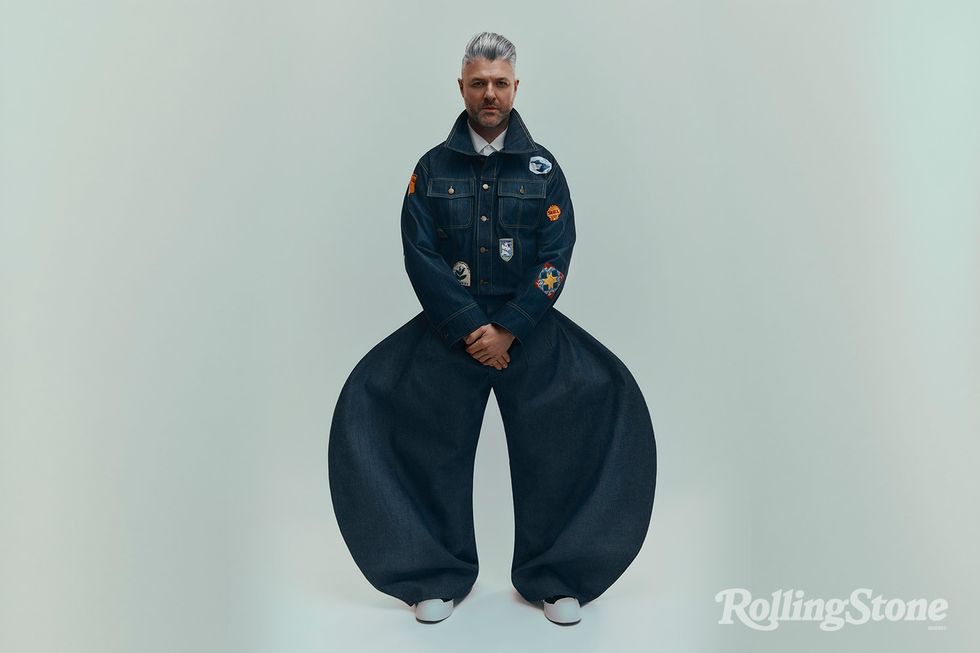 Blouson (denim and hand embroidered patches), WJ Crosson / Shit (polyester), Homme plissé Issey Miyake, Holt Renfrew/Pants from personal collection/ Shoes(canvas), Marni
Blouson (denim and hand embroidered patches), WJ Crosson / Shit (polyester), Homme plissé Issey Miyake, Holt Renfrew/Pants from personal collection/ Shoes(canvas), Marni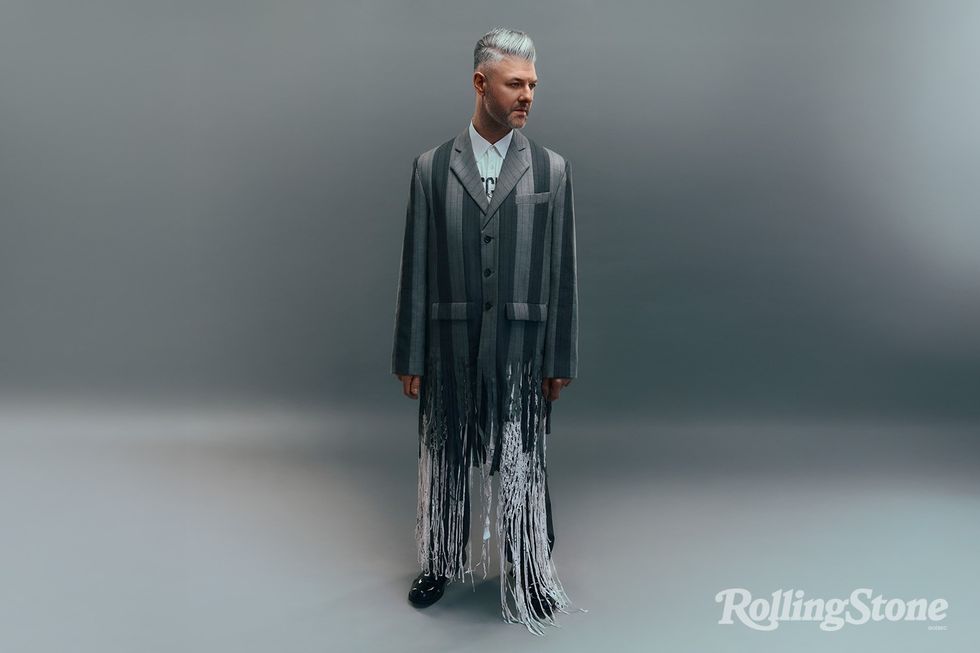 Jacket and pants (virgin wool), shirt (acrylic coated cotton), Moschino / Shoes from Pierre Lapointe's personal collection
Jacket and pants (virgin wool), shirt (acrylic coated cotton), Moschino / Shoes from Pierre Lapointe's personal collection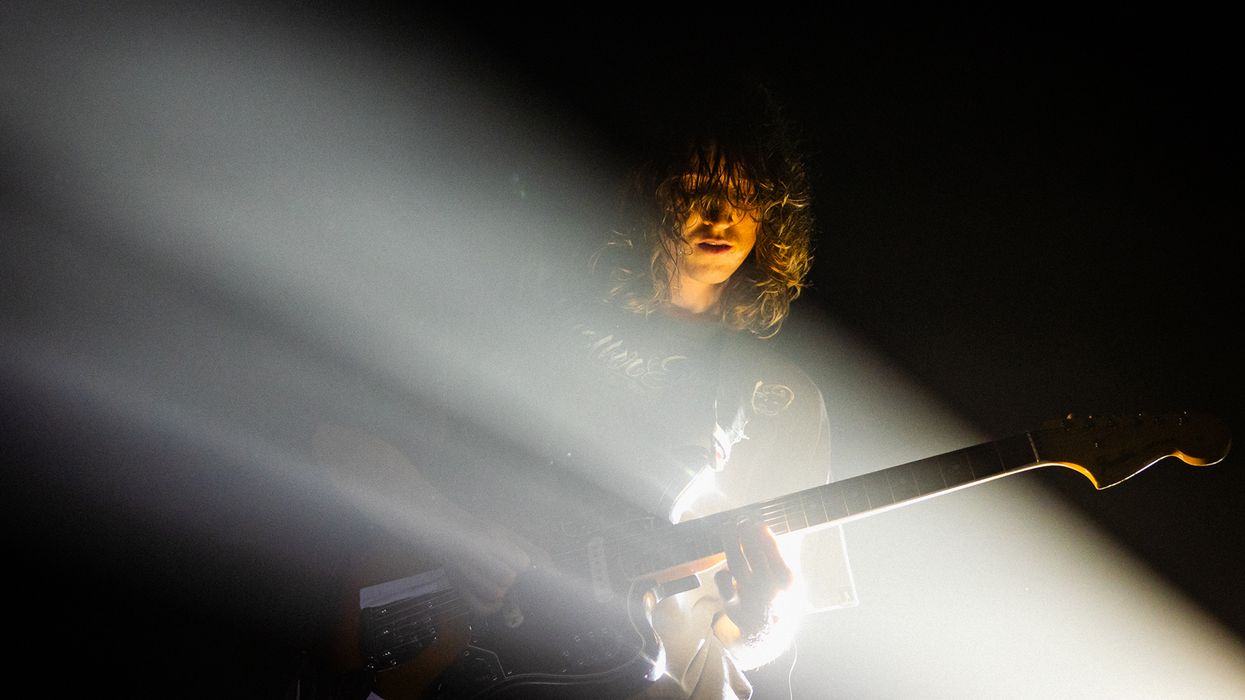
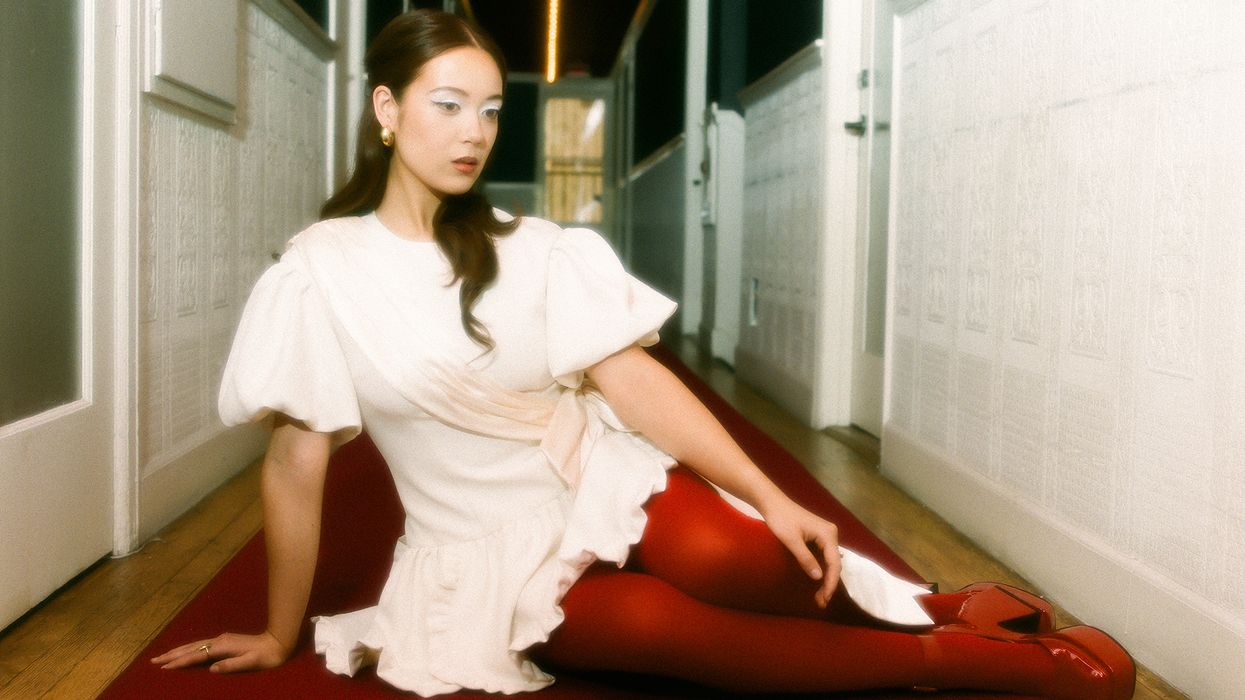
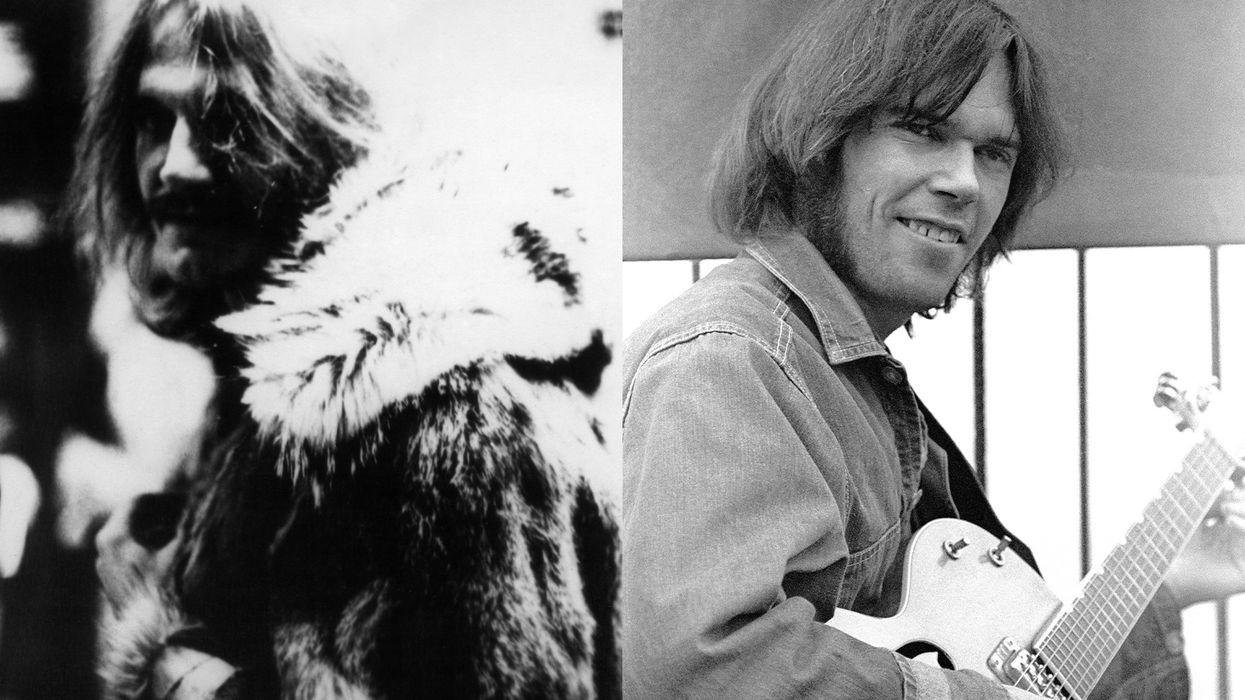
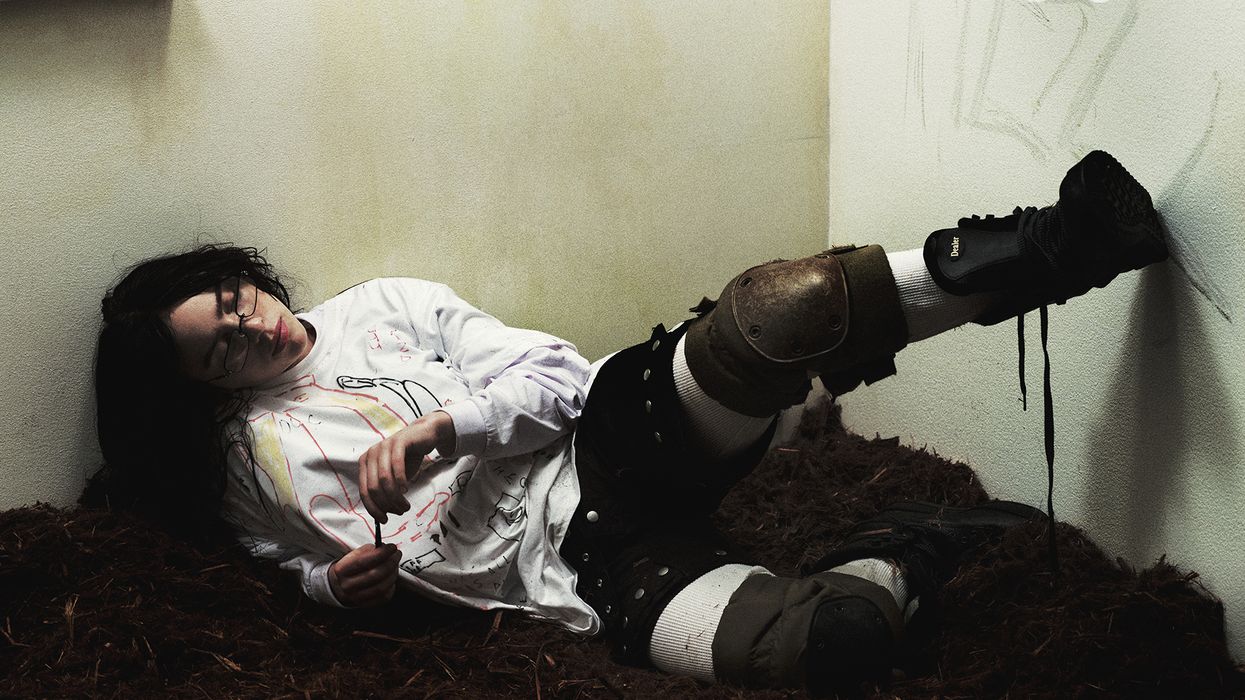


 Photographer: Raphaëlle Sohier / Executive production: Elizabeth Crisante & Amanda Dorenberg / Design: Alex Filipas / Post-production: Bryan Egan/ Headpiece: Tristan Réhel
Photographer: Raphaëlle Sohier / Executive production: Elizabeth Crisante & Amanda Dorenberg / Design: Alex Filipas / Post-production: Bryan Egan/ Headpiece: Tristan Réhel Photo: Raphaëlle Sohier
Photo: Raphaëlle Sohier Photo: Raphaëlle Sohier/ Photo production: Bryan Egan/ Blazer:
Photo: Raphaëlle Sohier/ Photo production: Bryan Egan/ Blazer:  Photo: Raphaëlle Sohier/ Blazer: Vivienne Westwood/ Skirt :
Photo: Raphaëlle Sohier/ Blazer: Vivienne Westwood/ Skirt : 


